The state of California is “home” to around 22% of America’s homeless population.
The San Francisco Bay in northern California is known as a hub for the homeless. The culture of 1960s America still lingers in the Bay Area, welcoming vagabonds and permanent homeless alike. Seven thousand of San Francisco’s 830,000 inhabitants are homeless, around half of whom are unsheltered. While San Francisco’s ratio of housed to homeless is comparable to that of New York City (64,000 out of 8.4 million), the state of California as a whole faces a larger problem: Approximately 22% of America’s homeless population lives in the Golden State.
Of San Francisco’s homeless, 29% are white, compared to 42% of the city’s total population, 26% Latino, compared to 16%, and 24% black, compared to 6%. The racial division of class is clearly palpable. Efforts are under way to curb the issue, namely the “Housing First” initiative, under which the homeless are given small cash grants and permanent housing situations rather than a larger grant and a bed in a shelter.
However, the city is currently undergoing a massive housing crisis, causing even those with stable jobs to flee to the smaller, cheaper cities of Oakland and Berkeley. No matter how gentrified the San Francisco Bay becomes, it will always be a haven for the homeless. Whether they can find homes there is another question entirely.
Jacob Straus spoke to people living on the streets of San Francisco about the challenges of their daily lives.
A man is sitting on a suitcase against the metal of a public transit escalator. He is wearing a paint-stained red hoodie and glasses with one lens taped in. He is missing his top teeth, laughs often, and is friendly and talkative.
Jacob Straus: What’s your name?
Jim: Jim Dwire.
Straus: What’s your story? How long have you been homeless?
Jim: A little over two months. Well, maybe three months. It started off kind of funny – I actually did it on purpose. I started in Modesto, had a place behind the Wal-Mart. I circulated petitions – good for 300 bucks a day. But I was married to this woman whose name is tattooed on my arm. And that stopped happening, and then I just decided to go on safari. ‘Cause I figured, I’m 44, I can do whatever the hell I want, I’ve been talking people into doing things pretty much since I was 17, selling one thing or another, all kinds of different s**t, so I just started learning how to panhandle. I had a phone at the time, I was recording and putting it on YouTube, like how to get food and things like that. But that’s basically what I’ve been doing.
Straus: What cities have you lived in since then?
Yeah! I can go home. People think I’m crazy.
Jim: Modesto and San Jose, that whole little area, and then I rode a bike from there to here. And then the bike got stolen. And it turned out just fine – I wanted to be on the ground anyway, so I didn’t really care.
Straus: What were those cities like to live in?
Jim: This is probably the most interesting place on earth. The other two – way more money there. The same sign’s worth a 100 bucks a day in San Jose.
Straus: What’s a good day and what’s a bad day?
Jim: You’re mostly just going for whatever you need. Everything’s so f****n’ free here – the only thing you really need to pay for is the weed, and that doesn’t cost – [laughs]. I mean the weed, that’s how come I didn’t have anything to put in the cup. I was just walking down the street and this guy pulled out this quarter pound of f****n’ … and I was gonna get cigarettes, and I said “Dude, that looks so f****n’ good. I only got three dollars and like 75 cents, can you give me something?” And he gave me two little nugs. But that blunt, I rolled this blunt, it took me three tries. But all you really need to survive here is 15, 20 bucks a day. That’s pretty easy to get.
Straus: Where do you sleep?
Jim: I like the freeway. I go to 7th and Harrison. It’s right out in the open, they don’t really give a s**t if you’re sleeping on that side, it’s covered, and it’s so far out in the open – I don’t like being around other people. Every once in a while somebody will walk by, but a cop goes by every 45 seconds, so if you fall asleep there, you know, some weirdo – a lot of people try and hide, and then some f****n’ weirdo happens upon you.
Straus: Is there any sort of homeless community in any of these cities?
Jim: There is, it’s real transient here. There was bigger cliques in San Jose, and Modesto was a very large f****n’ dynamic group. There’s no lasting alliances, if that’s what you mean.
Straus: In this city?
Jim: In any city. Once you’re homeless, there just isn’t any – it was rough for me to learn that part – you just have to adapt to it or you’re going to perish. Because I can do better than most of them, because I’m having a good time and I know I can make two phone calls and wouldn’t have to be homeless any more, but I don’t want to.
Straus: Really?
Jim: Yeah! I can go home. People think I’m crazy. That’s why I was on [laughs] YouTube. You know what I mean, they can’t really follow the logic, dude. I’m already 44, I’m gonna end up doing art here in ways I couldn’t do it anywhere else. Like, I do portraits and s**t that’s not worth any money any more, but here I can do three-dimensional art and s**t in the middle of the street. As soon as I get on these little assistance programs and s**t, I’m gonna build a cart and I’m gonna be one of those people – that’s the goal. I figure two or three weeks. That’s where I have the biggest competitive advantage, is having, A, a goal, and B, not drinking. If you don’t drink because you don’t drink and you’re homeless, you got a way, your whole playing field.
Yeah, I’m gonna conquer this place. I’m either gonna get rich or die trying here.
Straus: Because first you’re saving a lot of money, and second?
Jim: It’s not really the money. The vodka they sell is a half-pint of vodka for $1.75. And it just – it kills them. The idea is, if you’re just working from drink to drink – I mean I call it working, but I mean this is pretty hard s**t, dude. There’s lots of things I’ve done for a living that’s way easier than this. Sweet and sour chicken [indicates a full box of Chinese food] – that’s the type of s**t people just bring up to you. I mean it was all hot. Somebody has a restaurant or something, they’ll just go up and down the street after they’re done doing business. So you’re not really hungry. The cigarettes are more or less free, dude. [At this point, a man hands Jim a wrapped, apparently whole burrito.] Thank you, dude.
I mean I don’t know what the hell that is, but it happens all day. I do it on the road too. It’s just a crappy little newspaper – not really crappy, but really narrowly-defined, three, four sheets. It’s like a panhandling crutch. I tried to sell them, it was easier to just do the sign.
Straus: What about public services?
Jim: There’s tons of services, dude. First of all you got – you have an EBT card, right?
Straus: I do not.
Jim: You should immediately go get one. Everybody’s entitled to one, dude. All you got to do is go in there and tell them you’re homeless, dude. You can make $50,000 a year. You can make a whole s**tload of money. It’s 189 free dollars, dude. Dude, you go in in the morning at 8:00, and I had the card by 10:20. They don’t even have ID, dude. [laughs] And now all I have to do is wait until midnight and there’ll be $189 on it. And then I’ve got another appointment tomorrow, to see the people about getting cash. Just because.
Straus: Is that welfare? What is that?
Jim: It’s called General Assistance. And then, if you want to go anywhere in the continental United States, there’s a program called Homeward Bound. If you can get somebody – and I’m gonna try like hell to do this, dude – if I can get somebody to answer the phone in New York, and say yes, he’s coming home to me, that’s all they have to say. They’ll put you on a bus, they’ll pay for the bus and ten bucks a day for every day that you’re in transit.
Straus: It’s much harder to be homeless there. It gets cold.
Jim: It snows, dude! It’s not that hard anywhere if you don’t drink. The heroin kills you. The meth kills you. You can smoke pretty much all the pot you want, though. Because the thing with pot – you’re just a little bit more giddy. Like, I’m stoned out of my face! The only thing I do is sit here with this f****n’ sign, right? But if I was doing meth … I’ve done lots of drugs. I’ve done this, I’ve been on that. It’s really easy to get any drug, so you really gotta think. You gotta decide: I’m just not doin’ this because I don’t f*****g feel like it. If you get in one of those things where, oh my god, you’re gonna be scared as s**t, you’re just as f****d as if you’re doing it. I’ve never done heroin, but the meth – it’s just as bad, dude. You’re sitting and you’re like “F**k, what’s going on.”
Straus: I’m sure all the cops—
Jim: They don’t give a rat’s ass, dude. Like I said, it was a 100 bucks a day in San Jose. I had this blanket I would tie around my head. [laughs]
Straus: If you want to do art, why can’t you do art while living at home?
Jim: ‘Cause nobody will buy it. And nobody will give me money to do it. I’ll have a studio on Market Street. I s**t you not, if you’re in the area for another two weeks, it won’t take me that long. ‘Cause I’ve already got little designs. It’s not a real complicated f****n’ feat of engineering to build a cart and use recycling. Everything here is available, f****n’ scrap. All I have to do is make a detailed list of everything I need, and then you just go around from construction site to construction site: “I need three 2x4s,” you just check it off. You only need so many pieces. They’re building 700 things around here. And then there’s piles of crap everywhere.
But I like to be way cleaner than you have to look to be impoverished, dude. I don’t really look like I live on the streets, ‘cause I haven’t taken anything, dude. I’m me.
Straus: Are you planning on staying here longer than the other cities?
Jim: Yeah, I’m gonna conquer this place. I’m either gonna get rich or die trying here. I’ve done that before. I mean, I’ve done it where I built up from nothing before. I did it in Arizona once. [Another man comes up with a food donation.] Hey, thank you so much, man. You have a great evening. I mean how complicated is this, dude? I’m not even really doing anything! [laughs] And this is just sitting there, dude.
‘Cause you project something. This thing right here [points to his hoodie] is the homeless f****n’ uniform. If you notice – if you look for these red hoodies, the Salvation Army gives them out. They get donated – the extras just get poured everywhere, dude. So all the homeless people end up with it, and I don’t wash it. It makes you look more like … you know what I mean? I can’t pull that whole thing off yet. I can’t pull completely gone to the law, because I’m not there yet. You gotta make sure to be yourself.
But I like to be way cleaner than you have to look to be impoverished, dude. I don’t really look like I live on the streets, ‘cause I haven’t taken anything, dude. I’m me. I just get stoned and sit there with the f****n’ sign. If you’re too stupid to be able to keep your hands and your f****n’ face – I guess I gave less of a s**t a few weeks ago when I was doing the whole “it doesn’t matter” thing. What I kept thinking is, we all lived outside at one point.
Well-dressed passerby: You gonna eat that chicken wrap?
Jim: Yeah I’m gonna eat that.
Passerby: Just checkin’, man. I’m just thirsty.
Straus: I think that just about does it. Do you have anything else to say?
Jim: No. I’ve got an email address, could you just link me to wherever you have me?
The views expressed in this article are the author’s own and do not necessarily reflect Fair Observer’s editorial policy.
Support Fair Observer
We rely on your support for our independence, diversity and quality.
For more than 10 years, Fair Observer has been free, fair and independent. No billionaire owns us, no advertisers control us. We are a reader-supported nonprofit. Unlike many other publications, we keep our content free for readers regardless of where they live or whether they can afford to pay. We have no paywalls and no ads.
In the post-truth era of fake news, echo chambers and filter bubbles, we publish a plurality of perspectives from around the world. Anyone can publish with us, but everyone goes through a rigorous editorial process. So, you get fact-checked, well-reasoned content instead of noise.
We publish 2,500+ voices from 90+ countries. We also conduct education and training programs
on subjects ranging from digital media and journalism to writing and critical thinking. This
doesn’t come cheap. Servers, editors, trainers and web developers cost
money.
Please consider supporting us on a regular basis as a recurring donor or a
sustaining member.
Will you support FO’s journalism?
We rely on your support for our independence, diversity and quality.



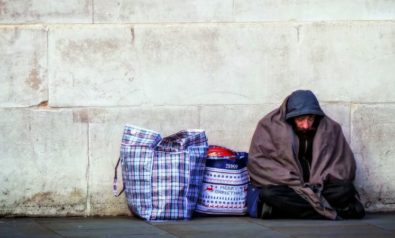

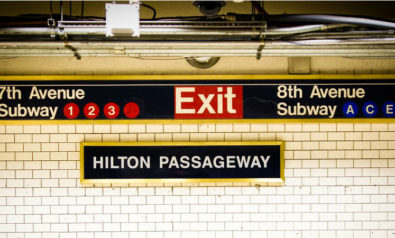
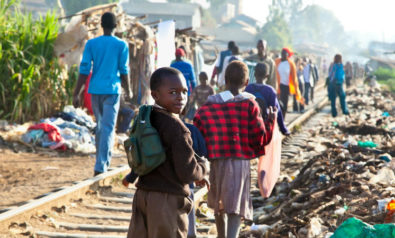
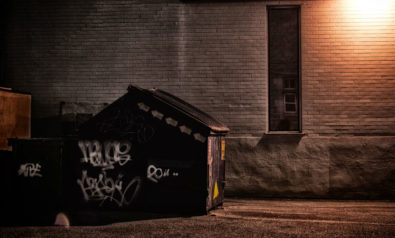
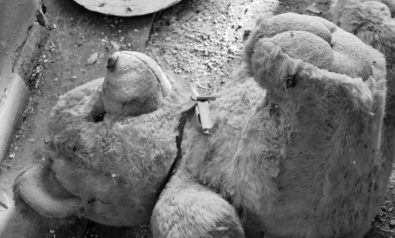
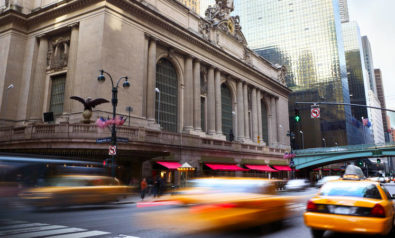
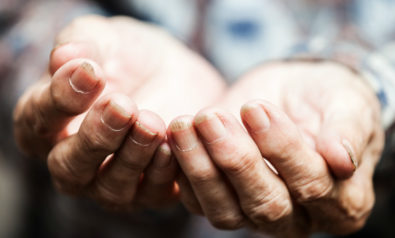

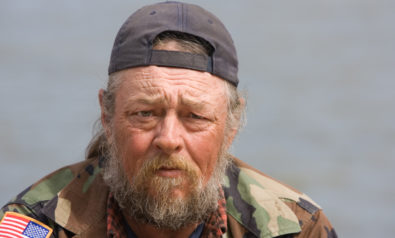

Comment